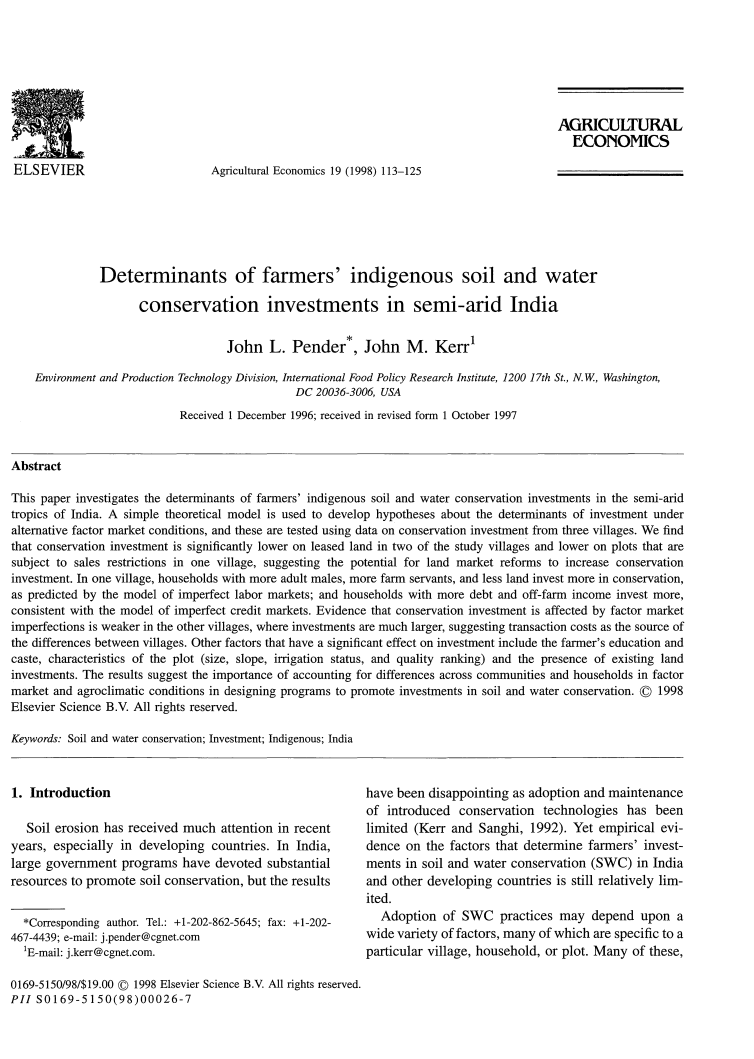Focal point
Location
About IFPRI
The International Food Policy Research Institute (IFPRI) provides research-based policy solutions to sustainably reduce poverty and end hunger and malnutrition in developing countries. Established in 1975, IFPRI currently has more than 500 employees working in over 50 countries. It is a research center of theCGIAR Consortium, a worldwide partnership engaged in agricultural research for development.
Vision and Mission
IFPRI’s vision is a world free of hunger and malnutrition. Its mission is to provide research-based policy solutions that sustainably reduce poverty and end hunger and malnutrition.
What We Do
Research at IFPRI focuses on six strategic areas:
- Ensuring Sustainable Food Production: IFPRI’s research analyzes options for policies, institutions, innovations, and technologies that can advance sustainable food production in a context of resource scarcity, threats to biodiversity, and climate change. READ MORE
- Promoting Healthy Food Systems: IFPRI examines how to improve diet quality and nutrition for the poor, focusing particularly on women and children, and works to create synergies among the three vital components of the food system: agriculture, health, and nutrition. READ MORE
- Improving Markets and Trade: IFPRI’s research focuses on strengthening markets and correcting market failures to enhance the benefits from market participation for small-scale farmers. READ MORE
- Transforming Agriculture: The aim of IFPRI’s research in this area is to improve development strategies to ensure broad-based rural growth and to accelerate the transformation from low-income, rural, agriculture-based economies to high-income, more urbanized, and industrial service-based ones. READ MORE
- Building Resilience: IFPRI’s research explores the causes and impacts of environmental, political, and economic shocks that can affect food security, nutrition, health, and well-being and evaluates interventions designed to enhance resilience at various levels. READ MORE
- Strengthening Institutions and Governance: IFPRI’s research on institutions centers on collective action in management of natural resources and farmer organizations. Its governance-focused research examines the political economy of agricultural policymaking, the degree of state capacity and political will required for achieving economic transformation, and the impacts of different governance arrangements.
Research on gender cuts across all six areas, because understanding the relationships between women and men can illuminate the pathway to sustainable and inclusive economic development.
IFPRI also leads two CGIAR Research Programs (CRPs): Policies, Institutions, and Markets (PIM) andAgriculture for Nutrition and Health (A4NH).
Beyond research, IFPRI’s work includes partnerships, communications, and capacity strengthening. The Institute collaborates with development implementers, public institutions, the private sector, farmers’ organizations, and other partners around the world.
Resources
Displaying 1426 - 1430 of 1493IFPRI Report
Commentary: Agriculture Can Give a Helping Hand to Cities; Roundtable Workshop Marks Beginning of Urban Food and Nutrition Study in Ghana; Research in North Africa and West Asia to Benefit Farmers on Fragile Lands; Ecoregional Mapping Helps Pinpoint Areas Prone to Malnutrition; Why Are Diets Changing in Asia?; New Booklet Spreads the 2020 Vision to Broader Audiences; Policies Aim to Avoid Conflict Over Dwindling Natural Resources; 2020 Vision Resources Catalog Now Available; Disease and Food Security: Two New Perspectives; Indicators of Performance Quality Applied to Indian Irrigation Syste
Determinants of farmers' indigenous soil and water conservation investments in India's semi-arid tropics
This paper explores the determinants of farmers' investments in indigenous soil and water conservation measures in the semi-arid tropics of India. Many types of indigenous conservation measures are observed in three study villages, including investments in terracing, levelling, gully checks, field boundary bunds, grass strips, drainage, and other measures. A simple theoretical model is used to develop hypotheses about the determinants of such investments in the context of possibly imperfect factor markets, and these hypotheses are tested using data from the three study villages.
Groundwater markets in Pakistan
In Pakistan, where agriculture is heavily dependent on irrigation, informal water markets are an increasingly important way to provide small farmers and tenant farmers with access to ground- water. The public canal irrigation system provides water to farmers who own land within designated areas, but it does not provide all farmers with adequate water supplies when they need it. Therefore, farmers who can afford it are installing tubewells as a sole or supplementary source of irrigation (Figure 1).
A 2020 Vision for food, agriculture, and the environment in Sub-Saharan Africa
The workshop participants were clear that now is the time for choices, and that without the will to make those choices, the likelihood of success in boosting agricultural growth on a sustained basis would be small. Without such growth, it will not be possible to improve food security or halt natural resource degradation. It seems unlikely that all countries of Africa will choose to put in place the necessary conditions for growth, which makes it all the more important to decide at the outset which conditions are most likely to beget further success.






